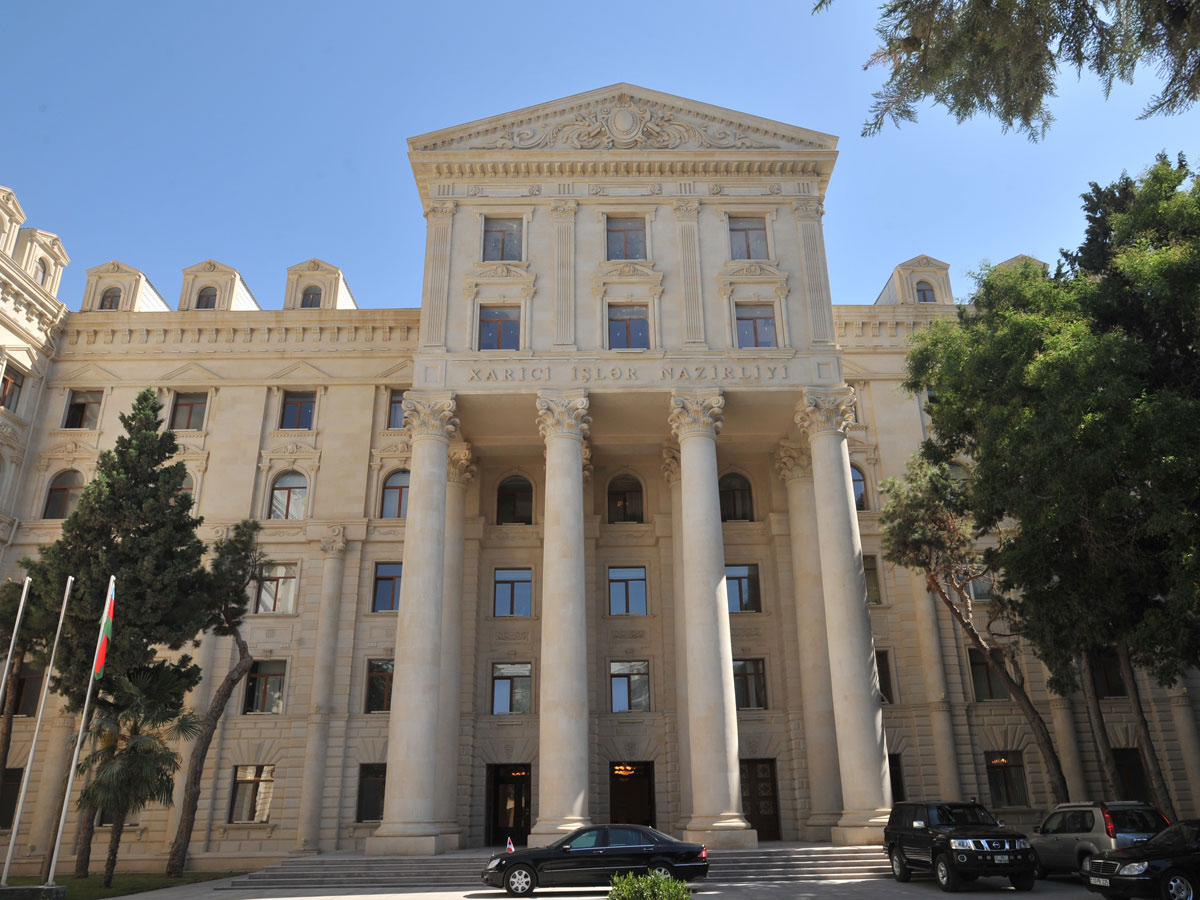Baku, Azerbaijan, Aug. 8
Trend:
Consequent to the deliberate shelling, specifically targeting the civilian population, of Azerbaijani settlements on the borderline done by Armenia on Aug 7, thirteen-year-old resident of Garalar village of Azerbaijan’s Tovuz district Ramin Yusifov was wounded, spokesman for the Foreign Ministry of the Republic of Azerbaijan Hikmat Hajiyev said Aug. 8.
"We reiterate that Armenia carries full responsibility for the actions that Azerbaijan will be forced to take in a way of deterrence and prevention of the Armenia’s provocations and attacks," Hajiyev said.
On July 4, as a result of brutal actions of the Armenian armed forces, 51-year-old resident of Alkhanli village of Azerbaijan’s Fuzuli district Sahiba Allahverdiyeva and her 2-year-old granddaughter Zahra Guliyeva were killed, and 52-year-old Salminaz Guliyeva was seriously wounded.
"Despite the international community’s condemnation of Armenia’s atrocities, the country did not draw any conclusions from its filthy actions and committed yet another barbarous act, which resulted in injuries sustained by the 13-year-old Ramin Yusifov,” he said.
“Brutality, aimed at slaughtering the civilians, including the children, is the state policy of terrorism implemented by the Armenian military and political leadership," Hajiyev said.
He added that, as a result of the ongoing war that Armenia has started against Azerbaijan more than 25 years ago, numerous war crimes, genocide and other inhumane criminal acts have been committed by Armenia.
"The Khojaly genocide, one of the most horrible and bloody tragedies, can be cited as an example,” Hajiyev said. “Military attack along the line of contact ordered by the Armenian leadership in April of 2016, resulted in six, including children, killed and 34 civilian injured.”
“Azerbaijan carried out counter-offensive measures, suppressed the enemy firing points and liberated from the occupation a number of the strategically important sites,” he said. “Armenia’s renewed military doctrine includes commitment of asymmetric attacks along the line of contact and shelling of civilians and civil facilities.”
“The fact that the Armenian military leadership makes statements, openly admitting that it does not disdain from targeting civilians and civil facilities, is the result of the impunity prevailing in regards of Armenia,” he said.
Hajiyev emphasized that Armenia’s direct and deliberate attacks on Azerbaijani civilians and civil facilities are seriously violating international humanitarian laws and human rights, in particular, the Geneva Convention of 1949 and Additional Protocol #1, as well as the Convention for the Protection of Human Rights and Fundamental Freedoms.
"According to the modern international law, direct responsibility for these acts, alongside Armenia as a state, lies on the persons representing country’s military and political leadership,” he said.
“Armenia's continuous occupation of Azerbaijani territories, as well as the presence of the Armenian armed forces in those territories create serious obstacles for the negotiation process are the main reason for the inception of military risks and tension,” he said.
“For the change of the unacceptable, occupation based status-quo, Armenian troops must be withdrawn from the occupied Azerbaijani territories firstly,” Hajiyev said.
“The Azerbaijani Ministry of Foreign Affairs and the Ministry of Defense issued a joint statement on July 26, issuing a warning to Armenia in reference of systematic ceasefire violation along the Armenian-Azerbaijani border, commitment of provocations and deliberate shelling of the settlements and civilians,” he said.
"We reiterate that Armenia carries full responsibility for the actions that Azerbaijan will be forced to take in a way of deterrence and prevention of the Armenia’s provocations and attacks," Hajiyev said.
The conflict between the two South Caucasus countries began in 1988 when Armenia made territorial claims against Azerbaijan. As a result of the ensuing war, in 1992 Armenian armed forces occupied 20 percent of Azerbaijan, including the Nagorno-Karabakh region and seven surrounding districts.
The 1994 ceasefire agreement was followed by peace negotiations. Armenia has not yet implemented four UN Security Council resolutions on withdrawal of its armed forces from the Nagorno-Karabakh and the surrounding districts.






